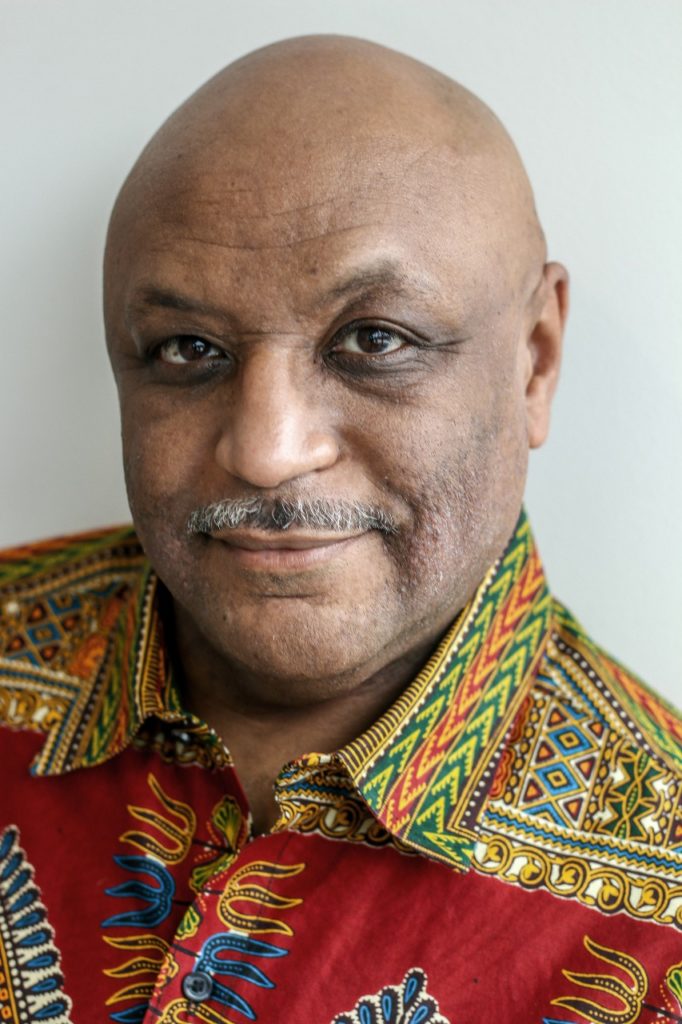
Maurice Broaddus’s bibliography covers a lot of ground, rethinking familiar genres and transposing certain storylines into radically different contexts. For his latest book, Sweep of Stars, Broaddus has written the first volume of Astra Black, an Afrofuturist trilogy that abounds with space exploration, political intrigue, and transformative technology. It’s a thoroughly immersive, deeply compelling work of fiction, and I spoke with Broaddus to learn more about its origins and how it relates to the rest of his work.
You’ve written novels ranging in setting from Arthurian retellings to steampunk. What drew you to a futuristic storyline of warring nations in space, AI intrigue, and generational legacies?
Dreaming.
I do a lot of community work. We are organizing around the fact that we live in the largest food deserts in the city. Battling gentrification and a housing crisis. Our school system is in shambles. We swim in the waters of a predatory and extracting economic system. And after a while, it’s tough to get up in the morning to suit up and go back onto the battlefield…without a vision of what we’re working toward. So, the Astra Black series represents the idea of dreaming collectively about a better world, our desired future states. Re-imagining the systems and priorities of our culture. Giving us something to possibly work towards.
Plus, spaceships.
Sweep of Stars is a novel that fully immerses the reader in the futuristic culture you’ve created. Was it a challenge to find the balance between making it understandable for a reader in the 2020s without getting bogged down in exposition?
Absolutely because the community of Muungano has guiding philosophies behind why they do everything: from the rituals to the stories to their economic system to the architecture to the technology to the magic. And it was very tempting to go on exegetical tangents explaining the reasoning behind it or simply detailing it (I always battle against showing the reader JUST how much research and thought I’ve put into something … which is why my first drafts are just terrible). So revision looked a lot like “what all can I take out?”
Where do your own tastes in science fiction, as a reader, fall?
This series was pitched as Black Panther meets The Expanse, so there’s that. As I answer these questions, a giant Captain Sisko (from Star Trek: Deep Space Nine) looms over me. And I need to clear space for a Captain Michael Burnham (Star Trek: Discovery). Don’t get me started on Dr. Who.
On the literary front, what sold me with science fiction was everything from comic books (Uncanny X-Men #136 was the first comic I read) to Walter Mosley’s Futureland, which first showed me what it meant to dream of a future on our terms.
Sweep of Stars abounds with allusions to great artists handled both overtly (a spaceship named for Toni Morrison) and done as narrative Easter eggs. How did you determine which allusions would be part of this novel’s world and which might be a little less outright?
I let the worldbuilding give me cover to let my nerd flag fly. Throughout the book, there are references to hip hop, jazz, and history. The name of the series, Astra Black, being a Sun Ra allusion. The title Sweep of Stars from the Langston Hughes poem “Stars.” Every name is a cultural reference, with the idea that this world would be grounded in culture and highly values art.
Now that I think about it, it reminded me of my experience listening to Public Enemy’s seminal album, It Takes a Nation of Millions to Hold Us Back. I enjoyed the lyrics on one level just as a great musical journey. But after a while, I started digging into them to examine what some of the references pointed to. In so doing, my love of history was first stirred.
What was the biggest challenge you had in writing this novel?
Honestly, it was being nagged by the idea that I wasn’t dreaming big enough. I just kept researching and piling on ideas and concepts and philosophies, so the biggest challenge became how to create a story to make sense of all of it!
Have you found it difficult to balance your work as a writer and as an editor?
It’s not been too bad. I’ve been given a lot of slack over at Apex Magazine. My official title is “Special Editor” … which seems to be code for I can do what I want! Seriously, they let me “bundle” my work—allowing me to work ahead—so that I can better balance the daily balance of word counts with the bi-monthly work load of editing.
Was there anything you’d learned from writing and structuring the The Knights of Breton Court trilogy that you found applicable to working on the Astra Black trilogy?
Definitely. The Knights of Breton Court was an accidental trilogy, meaning King Maker was a standalone novel and then had two books added to it. Astra Black is an intentional trilogy, so the arc is more controlled. I learned a lot about juggling a huge cast in KOBC (read: there were things I’d definitely do differently for the sake of clarity) that I’m (hopefully) not repeating. Or at least I’m making whole new mistakes!
Photo: Chandra Lynch ANKH Photography
Follow Vol. 1 Brooklyn on Twitter, Facebook, and sign up for our mailing list.
